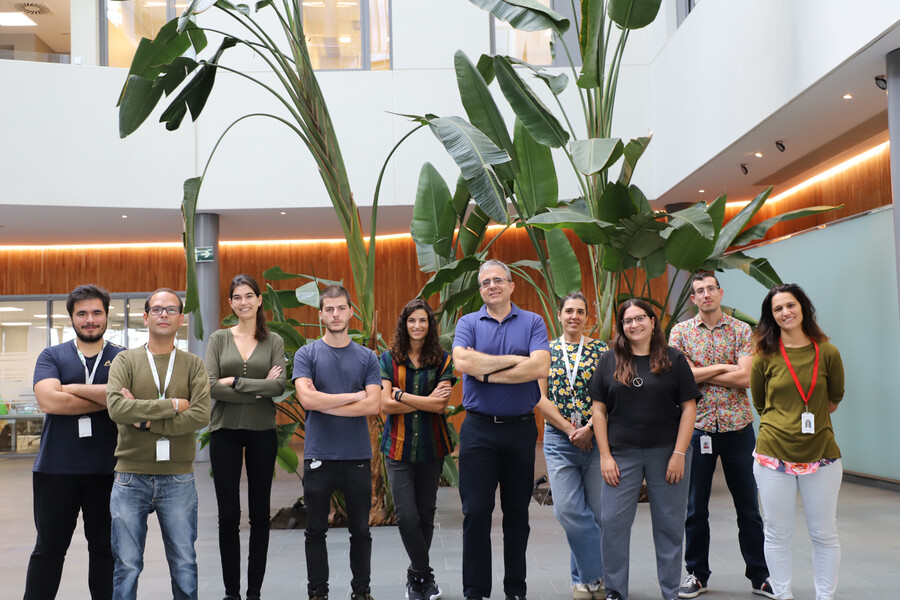
Introduction
The members of the sirtuin family of NAD+-dependent enzymes are key coordinators of this response, as they play an important role in the crosstalk between the environment and the genome, at both cellular and physiological level. In particular, they play a key role in the maintenance of genome stability, epigenetics, metabolic homeostasis, and cell differentiation and development. The relevance of sirtuin function is highlighted by their involvement in some of the most common human pathologies, including cancer (such as blood malignancies), diabetes and other endocrine-related diseases, neurodegenerative diseases and ageing.
Our Research
The chromatin biology lab’s primary purpose is understanding the mechanisms of the stress response and their impact on cancer and ageing. Specifically, the group focuses its efforts on defining the contribution of sirtuins to this response in the maintenance of genome stability, epigenetics and metabolic homeostasis.
To fulfil this main objective, the group’s work encompasses a wide range of research areas, from basic aspects of sirtuin biology to their contribution in the development of human pathologies such as leukaemia and ageing.
Our Goals
We aim at the identification of novel mechanisms and factors involved in the onset and development of blood malignances, and the creation of tools that could be helpful for its diagnosis and treatment. In this regard, the group’s main objectives are:
To understand the enzymatic duality of sirtuins and their specific contribution to sirtuin function. In particular, we focus our efforts on the poorly understood topic of ADPRT activity.
To characterize sirtuin-dependent mechanisms of genomic stability, including constitutive heterochromatin integrity, DNA damage signalling and repair, and cell cycle checkpoint control.
To define the role of sirtuins in B-cell differentiation and characterize their functional implication in cancer, particularly in the context of haematopoietic pathologies such as leukaemia and lymphoma. Our main efforts are currently focused on two types of leukaemia, paediatric B-ALL and AML.
To understand the involvement of sirtuin function in the beneficial effects of nutrient restriction on ageing development.
To develop a new methodology to measure the activity of sirtuins in vivo.
Our Challenges
Through our research, we seek to answer the following questions:
What is the physiological mechanism associated with the genotoxic and metabolic stress response?
What is the contribution of the sirtuin family of enzymes to the maintenance of genome stability after stress?
What is the implication of these mechanisms in the onset and development of blood cancers and ageing?
Team

Senior group leader

Postdoctoral Investigator

Postdoctoral Investigator

Postdoctoral Investigator

Postdoctoral Investigator

PhD Student

PhD Student

PhD Student

Research Assistant

Senior Lab Technician
Selected Publications
Current Grants
Fundación científica de la asociación española contra el cáncer
Descifrando el papel de SIRT7 en el desarrollo de linfocitos B y la formación de Leucemias

Ministerio de ciencia, innovación y universidades
SIRTRESS ESTUDIO DEL PAPEL DE LAS SIRTUINAS EN LA RESPUESTA ESTRÉS, ENVEJECIMIENTO Y CANCER (SIRTRESS)
Fundación científica de la asociación española contra el cáncer
THE PAX5/SIRT7 REGULATORY AXIS IN B-CELL ACUTE LYMPHOBLASTIC LEUKEMIA
Fundació "la caixa"
Exploring the role of the SIRT7-NPM1c+ regulatory axis in acute myeloid leukemia progression
Ministerio de ciencia, innovación y universidades
ESTUDIO DEL PAPEL DE LAS SIRTUINAS EN LA RESPUESTA ESTRÉS, ENVEJECIMIENTO Y CANCER (SIRTRESS)